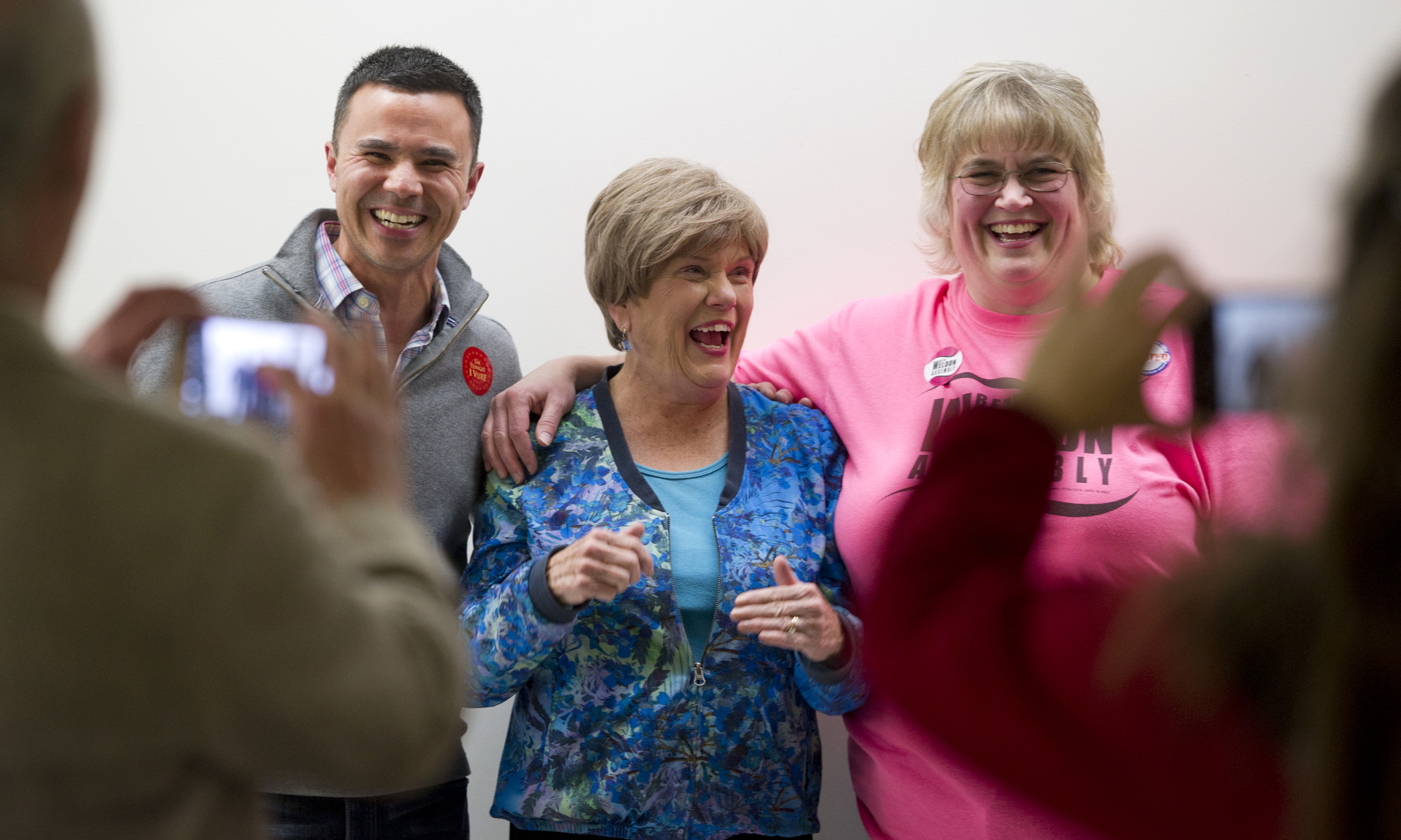Last year’s municipal election may have been the most expensive in Juneau history.
According to new filings from the Alaska Public Offices Commission, candidates in last fall’s municipal election spent more than $100,000 combined in their quest to win seats on the City and Borough of Juneau Assembly.
That appears to be a record, but incomplete online records make direct comparisons difficult. Candidates who raise less than $5,000 for an election are not required to report their contributions.
The deadline for filing fundraising and expense records was Jan. 17.
According to APOC filings, Mary Becker was the top fundraiser among Assembly candidates, collecting $29,359 in donations and personal contributions. Her work paid off — she defeated Arnold Liebelt for the District 1 seat by more than 500 votes.
Liebelt raised $8,378 for his campaign, a figure that included a personal loan of $3,000.
At the end of the campaign, Liebelt reimbursed himself with $1,553 left in his campaign’s coffers. Becker had $594 left in her campaign’s account. She donated the money to the Juneau Community Foundation.
Under Alaska Statute 15.13.116, a candidate who has money left over in his or her campaign account can give that money to charity, a political party, repay contributors, or simply turn the money over to the state or CBJ.
William Quayle, who finished third in the race for the District 1 seat, reported that he raised no money during the election.
In Assembly District 2, Beth Weldon was the lone candidate but still raised $28,884.
Of that figure, she spent $23,592. Included her campaign expenses were $2,200 in charitable contributions to groups including the Gastineau Humane Society ($200), the Juneau Housing First project ($500), the Alaska Development Corporation ($250), SAIL Inc. ($500) and Southeast Alaska Food Bank ($300).
Also among Weldon’s charitable contributions was a $250 donation to the Chamber’s permanent endowment. Craig Dahl, executive director of the Juneau Chamber of Commerce, contributed $150 to Weldon’s campaign.
The permanent endowment is separate from the Chamber’s ordinary operations. It’s a loan program intended to help small businesses, and Weldon said she wanted to contribute to charities that match her interests — including the support of small business.
“It’s a total coincidence. I’m a member of the chamber, and we had to renew our membership,” she said.
At the bottom of the form was a check-box asking members to contribute to the endowment. Weldon simply checked the box after ensuring the endowment was a registered 501c(3) organization, and inserted the amount.
Under state law, a municipal candidate can roll over a maximum of $5,000 to the next election.
After Weldon’s charity contributions, her fund had a surplus of $4,951.
In the areawide Assembly race, Norton Gregory defeated Kate Troll despite raising less money.
Gregory reported raising $16,500 and spending $13,613.
Troll reported raising $20,200 and spending $20,806. The latter figure includes money Troll rolled over from her 2013 campaign, when she raised $22,104 and spent $21,474.
Troll closed her campaign with an $857 reimbursement of a $1,000 personal loan to her campaign.
APOC’s online listings didn’t show campaign filings for the school board race.
The 2016 races show a sharp increase in spending over past municipal contests. In 2015, Loren Jones, running unopposed, raised and spent $1,398. The records of Jerry Nankervis, who won a contested race, are not listed.
In 2014, facing a three-way race for an areawide seat, winner Maria Gladzisewski raised $20,374. Her opponents raised $10,180 and less than $2,000, respectively. In a five-way race for a District 2 seat, Debbie White raised and spent $12,214. Running alone for a District 1 seat that year, Jesse Kiehl spent $3,676 and transferred almost $4,300 to his future-campaign account.
Gladzisewski, White and Kiehl are again on the ballot for the October 2017 municipal election.
White has already filed as a candidate for re-election.

